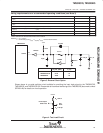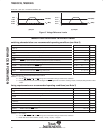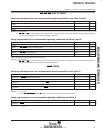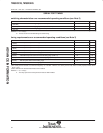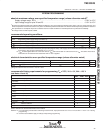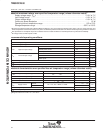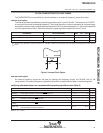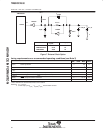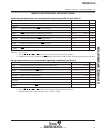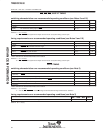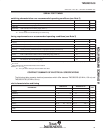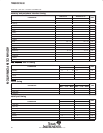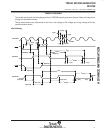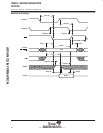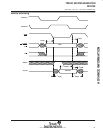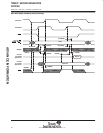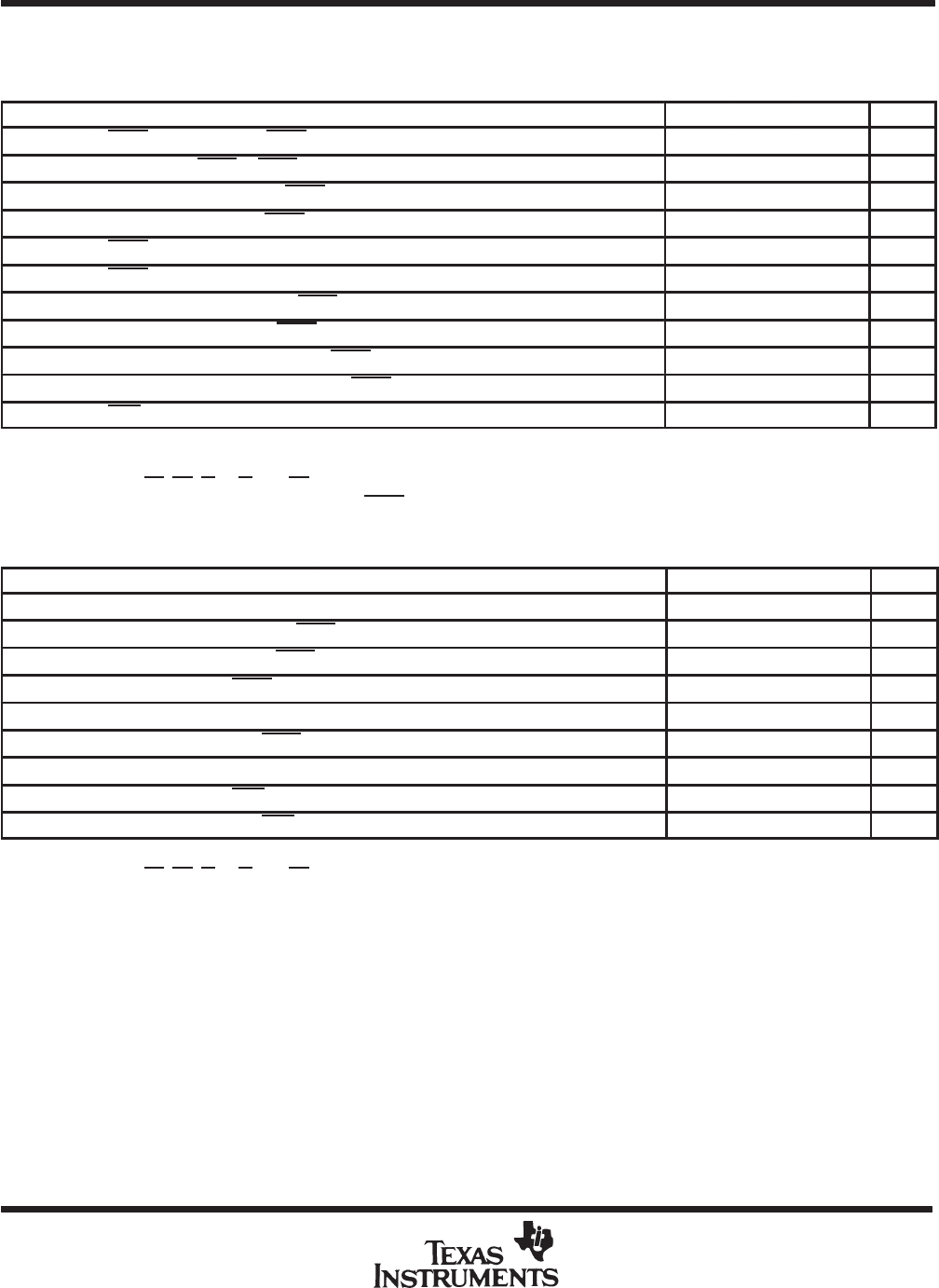
TMS320C25-50
SPRS010B — MAY 1987 — REVISED NOVEMBER 1990
POST OFFICE BOX 1443 • HOUSTON, TEXAS 77001
37
MEMORY AND PERIPHERAL INTERFACE TIMING
switching characteristics over recommended operating conditions (see Note 3)
PARAMETER MIN TYP MAX UNIT
t
d(C1-S)
STRB from CLKOUT (if STRB is present) Q – 5 Q + 3 ns
t
d(C2-S)
CLKOUT2 to STRB (if STRB is present) – 2 5 ns
t
su(A)
Address setup time before STRB low (see Note 5) Q – 11 ns
t
n(A)
Address hold time after STRB high (see Note 5) Q – 4 ns
t
w(SL)
STRB low pulse duration (no wait states, see Note 6) 2Q – 5 2Q + 2 ns
t
w(SH)
STRB high pulse duration (between consecutive cycles, see Note 6) 2Q – 2 2Q + 5
†
ns
t
su(D)W
Data write setup time before STRB high (no wait) 2Q – 17 ns
t
h(D)W
Data write hold time from STRB high Q – 5 ns
t
en(D)
Data bus starts being driven after STRB low (write) 0
†
ns
t
dis(D)
Data bus high-impedance state after STRB high, (write) Q Q + 15
†
ns
t
d(MSC)
MSC valid from CLKOUT1 –1 9 ns
†
Value derived from characterization data and not tested.
NOTES: 3. Q = 1/4 t
c(C)
5. A15-A0, PS
, DS, IS, R/W, and BR timings are all included in timings referenced as “address”.
6. Delay between CLKOUT1, CLKOUT2, and STRB
edges track each other, resulting in t
w(SL)
and t
w(SH)
being 2Q with no wait states.
timing requirements over recommended operating conditions (see Note 3)
MIN NOM MAX UNIT
t
a(A)
Read data access time from address time (see Notes 5 and 7) 3Q – 30 ns
t
su(D)R
Data read setup time before STRB high 19 ns
t
h(D)R
Data read hold time from STRB high 0 ns
t
d(SL-R)
READY valid after STRB low (no wait states) Q – 21 ns
t
d(C2H-R)
READY valid after CLKOUT2 high Q – 21 ns
t
h(SL-R)
READY hold time after STRB low (no wait states) Q – 1 ns
t
h(C2H-R)
READY valid after CLKOUT2 high Q – 1 ns
t
d(M-R)
READY valid after MSC valid 2Q – 24 ns
t
h(M-R)
READY hold time after MSC valid 0 ns
NOTES: 3. Q = 1/4 t
c(C)
5. A15-A0, PS
, DS, IS, R/W, and BR timings are all included in timings referenced as “address”.
7. Read data access time is defined as t
a(A)
= t
su(A)
+ t
w(SL)
– t
su(D)R
.
ADVANCE INFORMATION



